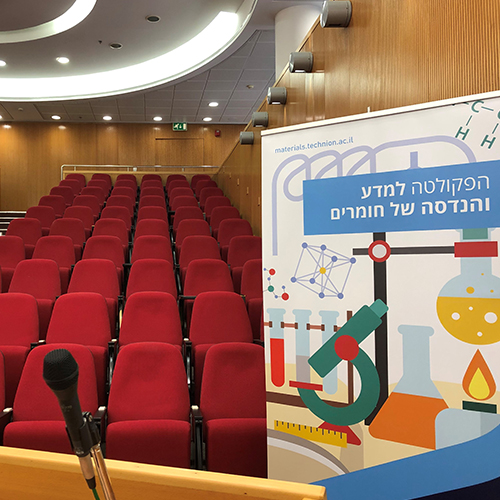
Ms. Michal Levin - Ph.D. Candidate
15/05/2025
David Wang Auditorium, 3rd floor Dalia Meidan Bldg.
Hydrogels are cross-linked polymer networks that absorb liquid in a reversible swelling process. Owing to their versatility, biocompatibility, and high deformability, hydrogels are widely used in soft robotics and biomedical applications. Typically, their incorporation into these systems results in mechanical, chemical, and / or microstructural constraints that alter swelling behavior. However, their behavior under such confinements is currently not fully understood. In my PhD research, we combined continuum mechanics, polymer physics models, and experimental tools including 3D-printing, to study the mechanics of hydrogels under confinements.
This seminar highlights three projects:
- We studied fluid-filled hydrogel core-shell structures. We modeled how shell geometry (cylinder or sphere) and core composition (oil or water) govern the mechanical response of the structure, expanding the design palette of hydrogels for drug delivery and sensing.
- We developed microstructurally motivated model to capture the unique bottlebrush structure of PEGDA gels. The model was validated via compression experiments. We showed how the overall mechanical response relates to microscopic parameters and can be tuned by experimental values.
- We developed a technique to measure the swelling-induced stress in gels under mechanical constraints based on 3D-printed boxes with varying spatial confinements.
These studies reveal the relation between microstructure, confinement conditions, and macroscopic behavior, providing a design framework for controlled mechanical responses of hydrogels.


